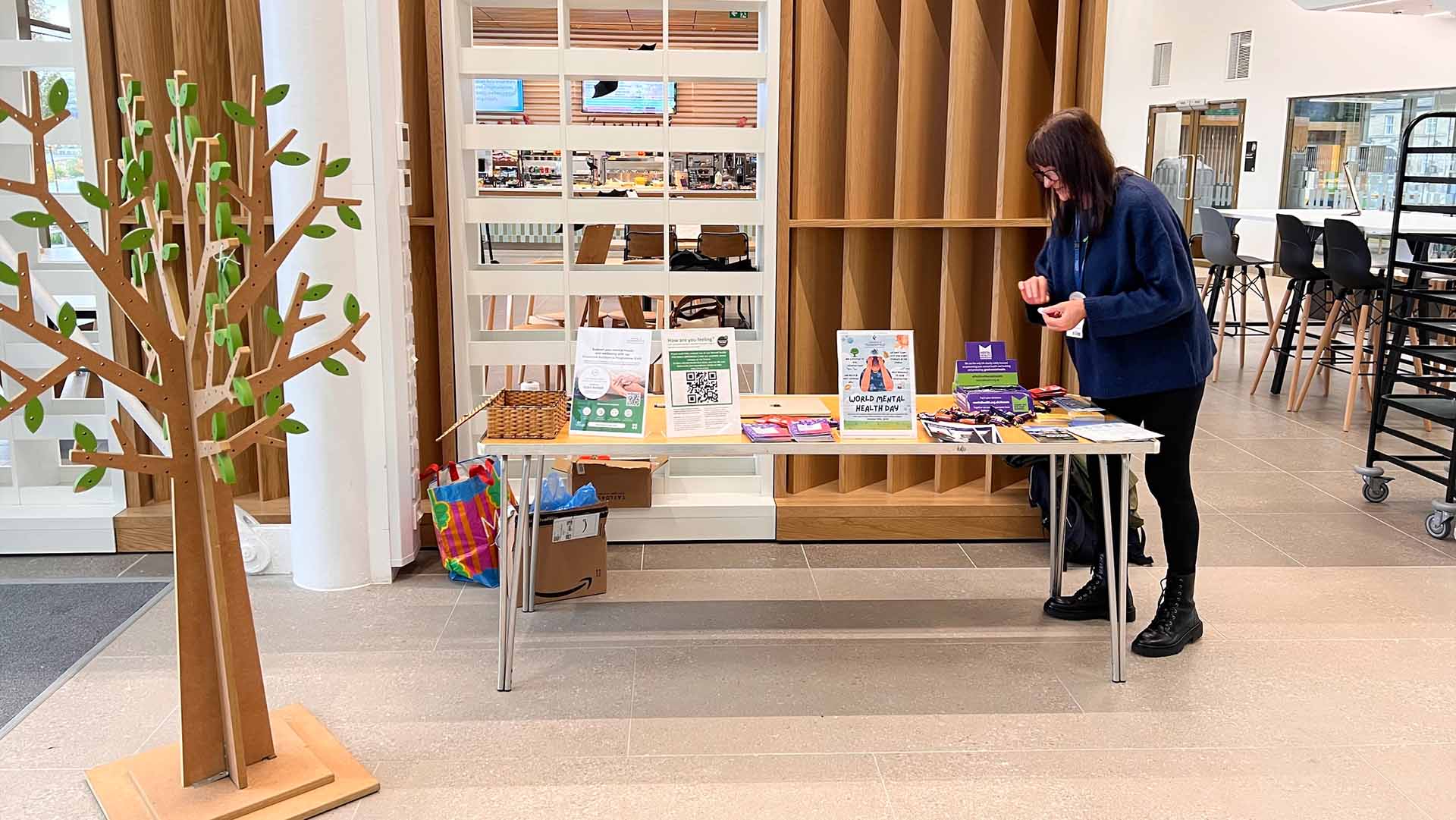Positive Tree helps university mark World Mental Health Day

The University of Huddersfield’s support for the mental health and wellbeing of its students and staff, as well as the academic research it carries out around the subject, was marked on the recent World Mental Health Day.
Mental health staff and students discussed and promoted their work for the public in the Daphne Steele Building, where a Positive-Tree for positive messages was available for all visitors, students and staff.
World Mental Health Day serves as an international opportunity to discuss mental health, promote its importance for overall well-being, and encourage support for those struggling with mental health challenges.
Dr Michael Doyle, Professor of Mental Health Research, says, “Mental health matters. It encompasses our emotional, psychological, and social well-being, influencing how we think, feel, and behave. Mental health plays a key role in how we handle stress, build relationships, and make healthy decisions.
"Having good mental health means feeling mentally and emotionally strong, being able to cope with life’s challenges, and feeling connected to others, your community, and the world around you.”
A recent wide-ranging stakeholder consultation and review conducted by the University of Huddersfield in Calderdale, Kirklees and Wakefield revealed high levels of mental health problems, especially anxiety, depression, psychosis and suicide, often linked to high levels of poverty, poor housing and unemployment.
The university has strong collaborative links with local authority, voluntary sector, health and care partners, and improving mental health is a priority for the university and all its partners.
Current research and development led by the university addresses the whole lifespan from birth, through adulthood and working with older people and their carers, while embracing the opportunities that new technology brings.
“World Mental Health Day is an excellent opportunity to raise local awareness of mental health issues, reduce the stigma and misconceptions surrounding them, and focus efforts to improve access to mental health services,” Dr Doyle adds.

”The university has a proud record of mental health research, and we have an ambition to grow our research activity in this area over the next five years to lead innovative, applied mental health research that is rooted in the lived experiences of local communities and build on existing research, while increasing research capacity and capability within our region.”
The University provides a wide range of support services to help students manage their physical and mental health and overall wellbeing. These include:
- 24/7 online self-help resources for immediate access to wellbeing tools and information
- On-campus support through one-to-one appointments, counselling, workshops, and group sessions delivered by the Student Wellbeing team
- Tailored support for students with specific needs, such as those with disabilities, care leavers, and student parents, including signposting to specialist services
- Health and fitness facilities on campus, including free ‘Active Wellbeing Classes’ designed to boost mood, reduce stress and anxiety, and improve sleep
- An on-site University Health Centre offering access to a variety of healthcare services
The University’s dedication to supporting the mental health and wellbeing of both students and staff has been formally recognised through the achievement of the University Mental Health Charter Award. Additionally, the Health and Wellbeing Academy was established to empower healthcare students to deliver health and wellbeing advice and support to fellow students, staff, and the wider community.
For more information and support:
Get a free NHS-approved Mind Plan. By answering five simple questions, adults will get a personalised action plan with practical tips to help them deal with stress and anxiety, boost their mood, sleep better and feel more in control.
5 steps to mental wellbeing - NHS 1. Connect with other people 2. Be physically active 3. Learn new skills 4. Give to others 5. Pay attention to the present moment (mindfulness)